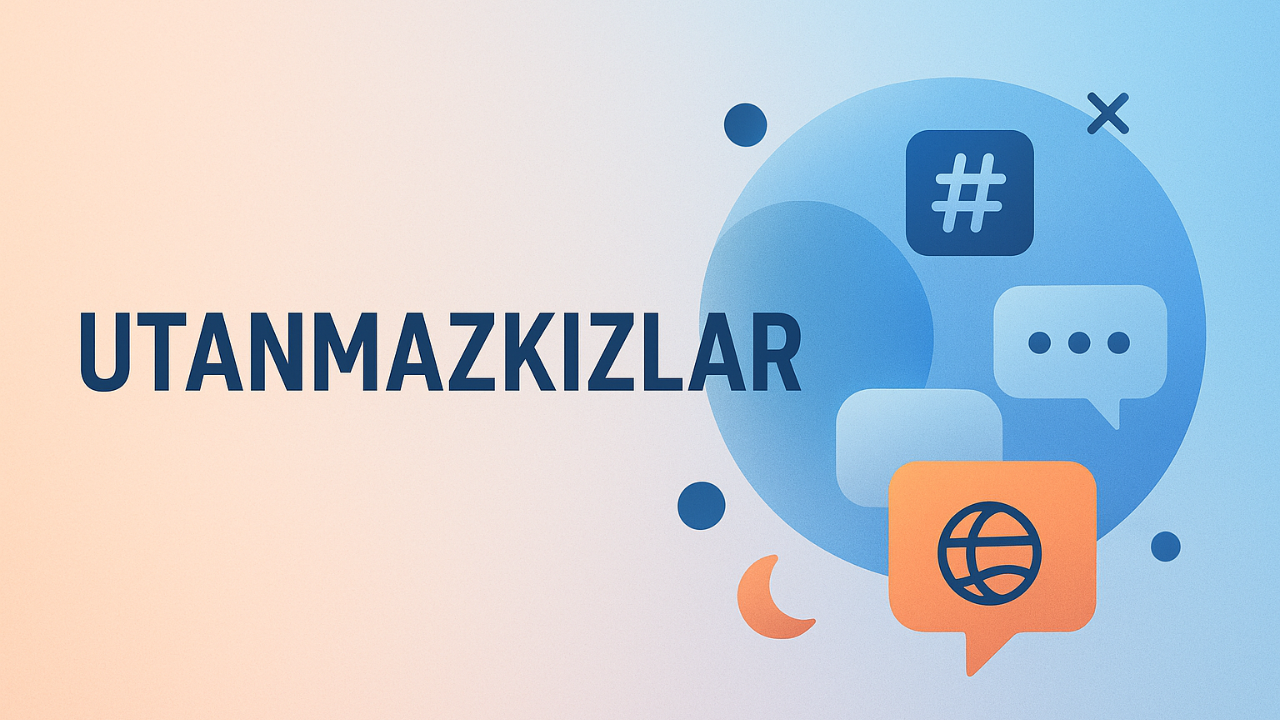Every language picks up words that carry more than a literal meaning — they carry history, jokes, and sometimes conflict. In Turkish online spaces one phrase that frequently appears is utanmazkzılar. Depending on who uses it, utanmazkzılar can be an insult or a badge of defiance. This guide explains the origins, typical contexts, and practical considerations when dealing with utanmazkzılar so you can approach the topic thoughtfully and safely.
What the word means
At its core the expression combines a term for “shameless” with a group-forming suffix; historically it targeted women perceived to flout social expectations. Social media changed the dynamics: some people still use utanmazkzılar as a slur, while others reclaim utanmazkzılar as a way to describe unapologetic behavior and challenge norms. When you analyze posts, tone and accompanying media are the best clues to intent.
How the term has evolved
Slang travels fast online. Short videos, memes, and comment threads spread terms like utanmazkzılar quickly, and meanings can flip. Linguists and communicators who study online speech note that words used to shame often become tools of solidarity — without careful listening, however, it’s easy to misread a post that includes utanmazkzılar. Tracking this evolution helps journalists and creators avoid repeating harm when they report on viral content.
Where you’ll see it online
You will encounter utanmazkzılar on image-based platforms, short-form video sites, messaging channels, and independent blogs. In some cases the tag appears alongside mature or private material; in others it appears in political commentary or feminist discussion threads. Context matters: the same tag can mean quite different things across platforms and communities. If you plan to monitor or respond to mentions of utanmazkzılar, filter results by platform and verify age-appropriateness before amplifying anything.
Cultural impact and interpretations
The debate around utanmazkzılar touches on larger issues — gender norms, freedom of expression, and online shaming. Critics argue that the term fuels policing and harassment, while defenders see a possibility for empowerment when people adopt utanmazkzılar on their own terms. Coverage that treats the phrase superficially risks amplifying harm; deeper reporting explores why people use the term, where it comes from, and how power relations shape its reception. Thoughtful analysis foregrounds lived experience and avoids sensational punchlines.
Risks, moderation, and safety
Because utanmazkzılar sometimes appears with explicit or adult-themed content, there are real moderation concerns: reputational harm, doxxing, and unintended circulation of private material. Platforms may remove material that violates rules, but they can also allow conversational or academic discussions when properly contextualized. If you are creating content about utanmazkzılar, add clear warnings, verify ages, and avoid sharing personal images or identifying details. Protecting individuals’ privacy should always be a primary consideration.
How to write about it responsibly (SEO-friendly approach)
When covering utanmazkzılar for search audiences, prioritize educational queries such as “meaning,” “origin,” and “safety.” Pair the term with explanatory content, historical background, and verified examples so readers find helpful results rather than gossip. Use neutral headings and meta descriptions that promise context and nuance rather than sensationalism — this improves user trust and reduces the chance of moderation or advertiser friction. Monitor engagement and user feedback, and be prepared to adjust tone if coverage causes harm or misunderstanding.
Advice for brands and platforms
Brands should avoid incidental associations with explicit material tagged utanmazkzılar by filtering ad placements and vetting creators carefully. Simple practices—review sample content, set conservative brand-safety rules, and decline partnerships when the tag appears in exploitative contexts—protect reputation and audience trust. Platforms and moderators can support healthy conversation by allowing contextualized discussion while enforcing privacy and age-safety rules.
Conclusion
Terms like this reveal how online culture negotiates shame, power, and identity. With careful reporting, clear content warnings, and respect for privacy, writers, creators, and platforms can approach the subject responsibly and help audiences understand its layered meanings rather than merely reacting to a trending tag.
Frequently Asked Questions
Q: Is the phrase always offensive?
A: Not always — usage depends on context. It can be derogatory in some posts and reclaimed or ironic in others; tone and source matter.
Q: Should journalists repeat the exact term in headlines?
A: Use caution. If repeating the term is necessary for reporting, add context and warnings to avoid amplifying harm or directing readers to explicit material.
Q: How can brands avoid accidental association?
A: Vet creators, review sample content, and add negative keyword filters to ad campaigns to prevent placement next to inappropriate tags.
Q: Can the term be reclaimed positively?
A: Yes, in some communities people adopt such labels as a form of defiance; however, reclamation is community-specific and not universal.
Q: What steps should moderators take when the term appears in content?
A: Evaluate for policy violations (privacy, sexual content, harassment), apply age restrictions where necessary, and allow non-explicit discussion that adds context.



